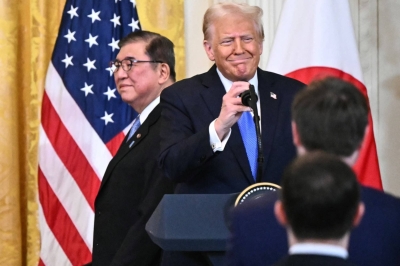The Science Council of Japan, the nation's largest and most powerful group of scientists, has launched a panel to discuss whether the group should drop its long-standing vow that scientists will not take part in defense-related research. That policy is an important principle that Japan's scientists have upheld for decades in view of the history of academic institutions cooperating with the military during the nation's past wars and the massive damage the wars brought to the people of Japan and other countries. The group should not tinker with the principle. Doing so would lead to a change in the basic nature of scientific research in this country.
The SCJ decided last month to set up the 15-member panel following heated discussions at a plenary meeting. Takashi Onishi, president of Toyohashi University of Technology and chief of the council, pointed to a changing environment surrounding scientists as the reason for reviewing the policy. After examining, among other things, what effects defense-related research projects and research funds supplied by the defense establishment will have on the nation's overall academic research through discussions that will be made open to the public, the panel plans to reach a conclusion by the end of September 2017.
The council was established in 1949 for the purpose of reflecting the fruits of scientific research on the nation's administration, industries and people's lives. It is a special organization under the Cabinet Office but is to carry out its work independently of the government. It represents some 840,000 researchers in such fields as natural science, engineering, social science and the humanities.


















With your current subscription plan you can comment on stories. However, before writing your first comment, please create a display name in the Profile section of your subscriber account page.